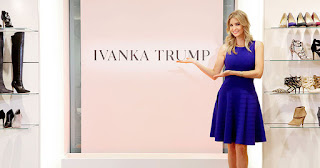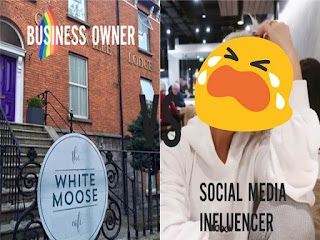The concept of role model is credited to Robert K Merton who came up with the expression in 1947.
The Webster’s dictionary defines role model as a person whose behavior in a particular role is imitated by others.
Dictionary.com defines it as a person whose behavior, example, or success is or can be emulated by others, especially by younger people.
The Collins English Dictionary gives a similar definition, going for a person regarded by others, especially younger people, as a good example to follow.
The American Heritage Stedman’s Medical Dictionary gives a rather scientific definition. A role model is a person who serves as a model in a particular behavioral or social role for another person to emulate.
Finally, our last resource, The American Heritage New Dictionary of Cultural Literacy opts for a longer definition illustrated with examples: a role model is a person who serves as an example of the values, attitudes, and behaviors associated with a role. For example, a father is a role model for his sons. Role models can also be persons who distinguish themselves in such a way that others admire and want to emulate them. For example, a woman who becomes a successful brain surgeon or airline pilot can be described as a role model for other women.
Even though the New Dictionary of Cultural Literacy gives a rather conservative example of women as role models, the core definition of role model that can be drawn from a multitude of reliable references does not suppose a celebrity status for the role model, but emphasizes the distinction and excellence factors. Athletes are broadly considered as role models. And they are, at least in terms of perseverance.
Nowadays, popular culture figures are considered as role models: distinction and excellence were replaced by fame: the more a person is famous, the more said person is viewed as a role model.
It’s undeniable that the bigger the celebrity, the bigger the influence, but one needs to differentiate between role model and influential person. In other terms, every influential person is not a role model as well as every role model/person qualified to be a role model is not an influential person. Furthermore, the culture of celebrity linked success to fame: you’re not successful if you’re not famous. Success is measured in terms of fame. The American 45th president is an accurate illustrative example of this sad reality. History books won’t be depicting him as the highest example of ethics and success, but probably as a bully wrongfully elected by an outdated system (electoral college), yet he still is the leader of the free world and consequently, it is still difficult to explain to children and teenagers why he shouldn’t be viewed as a successful role model.
On the local level, genetic lottery seems the most important factor in the measurement of success.
Lawrence O’Donnell, host of MSNBC’s The Last Word and one of the writers and producers of Golden Globe and Emmy Awards winner The West Wing, wrote an essay on the correlation between popular culture and the presidency of Donald Trump. He says: I think we have to widen the frame to explain how Trumpism has gotten this far. I’ve stared at it, the longer I’ve stared at that question, and the more I’ve widened the frame. I used to try to explain it just by looking at the evolution of our politics. Sarah Palin for vice president in 2008 is an obvious antecedent to Donald Trump as a Republican front runner eight years later. We can find points like that on the political map like that that are explanatory. But our political culture is inextricable from the rest of our culture, our popular culture. Candidate Trump has risen in a culture that brought your Honey BooBoo, a show that encouraged audiences to chuckle at the worst kind of child rearing, to watch a little girl getting no helpful preparation at all for how to advance in this world. America was invited to laugh at that little girl getting no helpful preparation at all for how to advance in this world. America was invited to laugh at that little girl and her mother, and America did. The people who run our networks did not grow up like this little girl. Most of them had parents who looked over their shoulders while they were doing their homework and helped them to get where they are today. And none of them have thought of returning that favor by creating a reality show where a mother who had a struggle to get through high school herself then becomes her own children’s best tutor and eventually over the years ends up sending them off to college. A show about excellence. Who would watch that? The ratings indicate – the ratings that you have supplied by watching TV – the ratings indicate that no one would watch that. Or not enough, not enough to keep a show like that alive. And so popular culture gives us “Snooki And The Situation”, not as cautionary tales, not as contemporary tragic figures who made the mistake of relentlessly ignoring their homework assignments in high school, but as amusements, people to laugh at. Popular culture gives us so called real housewives who prove they’re real by physically attacking each other at the off-screen urging of their producers who pretend it’s all worthy of your attention because it’s what they call reality. And popular culture celebrates the biggest stars in the sad history of reality TV whose last name became famous thanks to the double murder of Nicole Brown Simpson and Ron Goldman. No one in that family has any talent or ability worth aiming a camera at. But America’s celebrity culture doesn’t care about that. Celebrity is now easily achieved without any admirable talent or ability.
The word America can be replaced by either Lebanon or The World, and the essay will remain factually true.
Third world countries, where conservatism is deeply rooted in the majority’s mind, might think of O’Donnell’s essay as a denunciation of the sexual orientation of prime time TV. This misconception is the ultimate reason of the need for an alternative culture, a culture about excellence, freedom, equality, human rights, a culture that celebrates the progressive school of thought and helps eradicate the dark ages’ conservatism from its roots instead of covering it with high pitched laughs and useless shallow curiosity tickling characters.
We don’t choose the times we’re born into. We come into a world crafted by those who preceded us. We might not be able to change the cards we are dealt but, despite the difficulties of our times, we still get to play the hand the way we choose. The outcome of the game is on us no matter how bad our hand is.
Margaret Meade once said never doubt that a small group of thoughtful, committed citizens can change the world. It is indeed the only thing that ever had.





Comments
Post a Comment